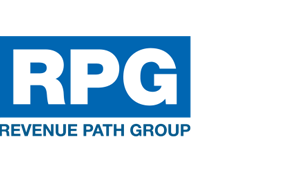Do You Have A Stand-out Offer That Your Customers Can’t Resist? Or Are You Regularly Left Standing Out In The Cold, While They Wait To Make Their Minds Up?
Increased product and service offer commoditizationCommoditization Absence of any perceived value, making it so that price becomes the only determining factor. Whether there is real differentiation or not, if the prospect’s brain cannot or will not distinguish this differentiation, it doesn’t matter. and customer indecision are severely reducing the effectiveness of the sales operation, says Bryan Gray of Revenue Path Group. Taken together, they form one of the Five Great Threats to revenue growth through effective selling.
Hanging on the Telephone – Fully 88% of Sales Calls Are USELESS !
There’s a stark truth every business that depends on sales growth needs to take on board. According to Forrester research, around 88% of sales calls are viewed by customers as being ineffective; i.e. they add no value at all to the customer’s life. Paying anyone to succeed only 12% of their time at work in any role is a terrifying thought. But when that pitiful strike rate applies to the very engine of the company’s growth – sales – it’s enough to leave the most seasoned business leader screaming!
The situation may be tough. But at least there are no mysteries surrounding this level of failure. The customers surveyed by Forrester confirmed they don’t respond to that mighty 88% of sales calls because there’s nothing in it for them when they do. It’s just more noise and more stuff –“cognitive overload” if you want a technical term.
The people making the calls are unable to communicate the full value – or any real value – of their sales message. They often don’t know enough about their industry, their market and their solution to be convincing. And when you know less about what you’re selling than the guy you’re trying to sell it to knows, it’s a fair bet that you’re in trouble.
What Other Operational Area of YOUR Business Would Accept a 12% Success Rate?
Of course there are organizations that would regard a 12% success rate as adequate. Successful even. They would see themselves as keeping pace with competitors. Maybe even outpacing them. So that’s ok? Well sorry, but no it isn’t ok. Not if you want to create a profitable organization, fuelled by vigorous sales led growth. Drill down into the successes – those times you do get through and have your message listened to by a customer. Even in that situation of viable opportunity, you’re likely losing out around 76% of the time. How so?
Credible data suggests that 16% of sales lost will be to competitors. Again, you might think it perfectly ok to retain well over 80% of your closable sales. That looks like a home run … until you dig deeper. Competitors leave you with four fifths of the potential pie. But it’s not your commercial rivals who are eating your cheese (and whatever other filling you have in your pie). The culprit isn’t an honorable foe in a clean fought battle. It’s the miserable, skulking, creeping fog that is customer indecision.
Customer Indecision – Accounting for a Pretty Decisive 60% of Lost Sales
Indecision accounts for around 60% of lost sales. Customers take an age to make their minds up. Somewhere along the way, the love and enthusiasm die. And you lose out. What are the reasons for this very undesirable situation? And what can you do to improve it?
Start with a deep realization: there is no advantage to you in letting customer indecision creep in and take root. You need to stand out fast. You need to stand out enough to trigger a decision – even if that decision goes against you. And you either need to make the sale or make your way out of the situation and on to the next opportunity. The long sales cycle never makes you a winner. Take a hard look at your current pipeline. If it is clogged with sluggish, wannabe deals that are not really going anywhere, examine the root causes and take action.
Effective action depends on making a second realization. Most customers are “indecisive” for a small number of important reasons. The key driver is commoditization. Customers do not see what you are offering as being different in any significant way. They could find it somewhere else, with at least a couple of viable alternatives and maybe dozens, or even hundreds, of other choices. And the first rule with any commodity is that you always buy it for lowest price not top dollar.
Can You EVER Win a Race to the BottomRace To The Bottom This happens in the procurement sale phase where there’s little to no vendor differentiation in the prospect’s brain. Price becomes the deciding factor, and vendors many times get pitted against each other to win via the lowest possible price. Organizations may hope that later this pricing position can be reclaimed (after the initial sale is made, in future sales), but this rarely happens. on Costs?
Buying for lowest price means a race to the bottom for your costs, your margins and any prospect of a decent profit. You can only win this game if your whole operation is configured around delivering lowest price and you know you can work on wafer thin margins. BUT … If you need to make the best profit you can on the most sales you can achieve, you literally cannot afford the luxury of a bunch of “indecisive” customers. And you must, therefore, wake up and get real.
Think of the commoditized market as a Roman gladiator arena. You and your fellow combatants are out there on the sand under the burning sun. You’re the ones sweating and straining. Literally giving your life’s blood. In the end only one of you can win. Along the way, you’re providing entertainment for a bunch of guys sitting in the shade, in no hurry to put their thumbs up or down, as long as the show continues. Unlike a real gladiator, fortunately, you have the chance to walk away. So do that. Leave the arena. Work on some new moves. How?
Don’t be afraid to look very rationally – critically – at what you’re selling. If it is a commodity, re-configure to make the sale on a new basis: price led, fast, no prisoners. Thumbs up or down in a quick clean fight. If however you truly believe that your offer is stand-out, that it deserves real, focused, positive customer attention that leads to winning the business, then equip yourself to be a winner.
Get Yourself Some Lethal Weapons
Your new sales armory will include three lethal weapons:
Lethal weapon 1. Make Your Offer A “Must Have” Some estimates say that we are faced with around 35 thousand decisions a day. Even if the figure is closer to 350 or 35, that’s still a lot of decisions. So, clarify and tighten your offer. Strip out the “cognitive overload” and make choosing you – quickly and decisively – a no-brainer for your customers.
Lethal, weapon 2. Make Your Sales Team Make Sense Become certain, through message clarification, training and real understanding, that every time one of your sales people makes a sales call, they will add value to the customer, drive a positive decision and eliminate indecision.
Lethal weapon 3. If You Don’t Win, Don’t Lose Out In The Sales Process Stop confusing activity with achievement. As soon as it becomes clear that your “customer” is just playing you, disengage. Cut your losses and move on. It’s a certainty that you will save resources and protect your credibility. It’s not impossible that some of those “indecisive” customers will quickly realize that you are exactly the kind of confident, successful and determined supplier they need.



